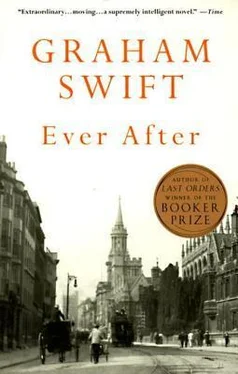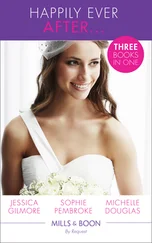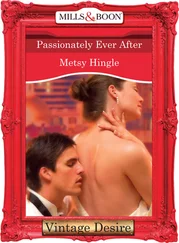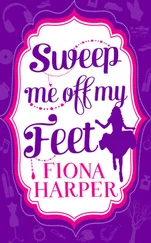In short, the love which Tubby Baxter fired in me has never faded. There has always been, for me, this other world, this second world to fall back on — a more reliable world in so far as it does not hide that its premise is illusion. Even when I left it to enter — what? the real world? the theatre? — I acted with shrewd and miserly husbandry. I made sure there was a good stock of that other world still stored in the barn (the little library I set up in our Sussex cottage — while Ruth learnt her parts). Waiting for winter. I paid the real world the solemn respect of supposing it might not be real, and I paid happiness the compliment of supposing it might not last. “Call no man happy …” Isn’t that what literature says?
I did all these things. And, you see, I was right, I was prepared. But none of it helps you. Not one little bit.
So when Sam came up with his little arrangement for me …
I appreciate that from the point of view of these hallowed precincts my claims must seem paltry. I am not proud. I do not seek eminence (does my mother hear me?). All my life I have been — quite literally so in recent times — a man behind the scenes. A one-time academic who never aimed at professorship, a poetry lover who never aspired to poetry. All this, I’m sure, given the Ellison Endowment, would have been tactfully overlooked, even cheerfully indulged. But what has put the learned noses out of joint is the so-deemed simplicity of my actual views on literature. My latter-day return to scholarship has not, it seems, displayed any gathered maturity. Apparently, word has got out that in those tutorials of mine (which now seem to be a thing of the past) I have been doing little more than urging my students to acknowledge that literature is beautiful — yes, the thing about a poem is that it’s beautiful, beautiful! — and other such crude, sentimental and unschooled tosh.
Now, I admit that in my former days I could wrap this around a little more. I still can. I admit that if you stop at such a view you hardly leave the way open for those lengthy critical discussions and erudite commentaries which are the mainstay of the professional study of literature. I admit it is stating the obvious. But why shirk the obvious? Literature doesn’t, after all. A great deal of literature — why not be frank? — only states the obvious. A great deal of literature is only (only!) the obvious transformed into the sublime.
So is it a trick? Is it the case that if we can take it apart and discover that all there is is the crashingly commonplace, we are no better off than we were before? I don’t think so. I think (perhaps I should say now “thought”) there is something really there , something that comes out of the obvious. Something beyond the obvious.
Why should the simplest, tritest words (excuse this extemporary lecture) touch us with pure delight? “My true love hath my heart and I have his.” Why do the most tired and worn (and bitterest) thoughts — the thoughts we all have thought — return to us, in another’s words, like some redeeming balm?
Even such is time, which takes in trust
Our youth, our joys, and all we have ,
And pays us but with age and dust;
Who in the dark and silent grave
When we have wandered all our ways
Shuts up the story of our days .
So? We all know this. We have heard this before, and we would rather not dwell, thank you, on the subject. But the words hold us with their poise, their gravity — their beauty. They catch us up and speak for us in their eloquence and equilibrium, and just for a little moment (are you listening, my fine Fellows, my prize pedants?), the obvious is luminous, darkness is matched with light and life is reconciled with death.
I rest my case.
(And, by the way, the words were penned — on the eve of his execution, they even say — by a putative ancestor of mine, Sir Walter Ralegh.)
Where is Tubby Baxter now? I should blame him, or thank him, for setting the whole course of my life. For if I hadn’t succumbed to this lifelong addiction, this lifelong refuge of literature, I would never have become, via my stepfather’s maledictions (“You like books so much, pal — you better learn how to eat them!”), a starveling student, perched in the chilly eyrie of a bed-sit in Camden, living, indeed, only on poetical nourishment and the irregular and surreptitious cheques (“Flesh and blood, darling, flesh and blood”) my mother sent me. And if I had never become a starveling student, I would never have been impelled, despite those maternal subsidies, to seek casual, nocturnal work to support my daytime studies. And so might never have entered, as part-time bar assistant and general dogsbody, a tinselly little temple of illusion, a den of late-night delights, called the Blue Moon Club in Soho.
And so (but aren’t these things meant to be?) would never have met her.
I see him now, that former, unformed self of mine. That spectral, prehistorical being. Hunched in the aura of a reading lamp (but what has changed?) like a creature suspended in amber. Like a creature still in embryo. Neither in nor out of the world. He is free, he is proud. He has Hamletesque pretensions: “You would pluck out the heart of my mystery …” He is studious, he is callow. His head is in the clouds. But the days are coming when the poetry will come alive. When the books will turn inside out. When the sighs and raptures and entreaties of all those love-sick bards will no longer seem like wishful thinking. And all those dubious and apocryphal mistresses, all those impossible and enslaving Cynthias, Julias and Amaryllises, will no longer seem like moonlit phantoms, like paper dreams.
The Blue Moon Club in Soho. What a far cry from this place. Do not imagine anything too wicked. Nor, on the other hand, too demure. This is the year of our Lord 1957: half-way between the age of rationing and the age of permissiveness; half-way between the syrupy ballad and the full frenzy of rock-and-roll.
The Blue Moon was a “night-club,” not a dive, and definitely not a strip joint. There was no disrobing, even if there was scant attire. Its atmosphere was charged with a piquant ambiguity in which it was hard to distinguish failed innocence from failed sophistication. The girls (there were three of them — as many as the tiny stage could hold — along with three musicians and a “resident” singer, a buxom, brassy trouper called “Miss Rita”) were only “passing through” this slightly risqué venue en route (you could gauge their degrees of conviction) for “real” work in the “real” theatre. Hence their fondness for an impoverished student who, like them, was only dabbling in this dubious night-work to serve his aspiration to higher things. He was no more interested, therefore, in their frivolous titillations than they were in teasing his callowness. So when, in the narrow, rear-of-house passage, they scampered past him in single file (Mandy, Diana, Barbara — where are they now?), forcing him to press his back against the wall and smile weakly while he was successively brushed by their frills, plumes, flounces and tassels; or when one of them slipped in or out of their cramped communal dressing-room and he caught a glimpse of fevered undress — this was only accidental. Their winks, tut-tuts and little blown kisses were just their excuse-mes.
He is callow, he is studious. Brought up on ballerinas worshipped from afar and the high jinks of Sam and his mother just across the landing, he has acquired a certain tentativeness in a certain area (in which Hamlet himself did not exactly have plain sailing). He is gauche, he is guarded (believe me, he is no Errol Flynn), but he is Paris-trained. And here he stands again, on his army-exempting flat feet, with his brain in a spin, gawping at dancing-girls.
Читать дальше












